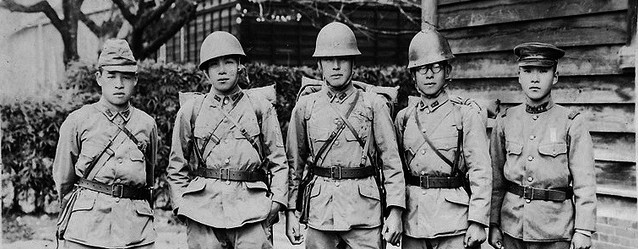It took a second read for me to like “Bombay Republic.” It’s the lucky story that won the Caine Prize for African Fiction and is written by Rotimi Babatunde, a Nigerian writer. I love the story because it has a bit of Kafka’s magic. Colour Sergeant Bombay, a post-WWII Don Quixote, is chilled and naive in the way that only Kafka’s characters can be. Naive does not mean stupid. Most times, in Kafka’s story, naïveté is a lighter shade of crazy that gradually reveals itself to be understated cleverness.
Get this. Sergeant Bombay is in a jungle outside Colombo. World War II is in full gear. He and a boat load of West African soldiers have been shipped to this leech infested and rainy place to fight the Japanese. Everything seems mundane in the way that war camps tend to be until their first engagement with the enemy. It’s a curiously successful day at the battle field. Not a drop of blood shed even though the enemy fled for dear life. A performance that’s clearly worth a medal or two. So the Lieutenants informs Bombay that he is going to be decorated for letting the Japanese have it. But Sergeant Bombay isn’t have anything to do with any decoration. He insists that he doesn’t deserve recognition ’cause he really didn’t fight. In fact, when the enemy appeared, he was scared. So why is he being decorated, he protests. Sergeant Bombay is right. There is something fishy going on. This is what his Lieutenant tells him:
The stories that preceded you to this war said that the Africans are coming and that they eat people. We fuelled those rumours by dropping leaflets on the enemy, warning them that you will not only kill them but you also will happily cook them for supper. The Japanese, as you very well know, are trained to fight without fear of death. They don’t mind being killed but, like anyone else, they are not in any way eager to be eaten.
Ouch! Bombay’s reaction?
Bombay stood perplexed for a long spell, trying to come to grips with the revelation he had just received. Perhaps human flesh may be prime grade meat but he had never imagined eating anyone for a meal or even as a quick snack.
Things quickly get out of hand. A European Lieutenant gets disemboweled. A European captain goes raving mad and shits himself. Japanese soldiers never get over their fear. The war ends, and everyone goes back home knowing that this little band of African and Irish soldiers fighting in the outskirts of Colombo will never be remembered in the many stories that will be told and retold about WWII. Not so for Sergeant Bombay. He remembered the part he played in the war, how it helped him see that impossible things were possible like getting away with killing a white soldier. The war and all it taught him about possible impossibilities will sustain him all through the dark and delusional years he spends as the sole sovereign and subject of Bombay Republic, the jail house he thought was a knight’s castle.
As dark as this all sounds, it does take on a dry comedic texture in Babatunde’s gifted hands.
Read story HERE.
Post Photo via
Feature Photo via









Anakwa Dwamena May 08, 2014 20:15
Many years later, this short story remains one of the best to have won the Caine Prize in my opinion. Its intriguing you thought of Kafka after reading this. Marquez, himself influenced by Kafka, came to mind for me. I don't know how the author developed the story, but there is a sense of reverse engineering from myths and "urban" legends -- what I image to be the many stories he heard growing up about the war, and the soldiers that fought in it. Its so intriguing in how he is able to build a character who debunks myths and in doing so, learns about himself.